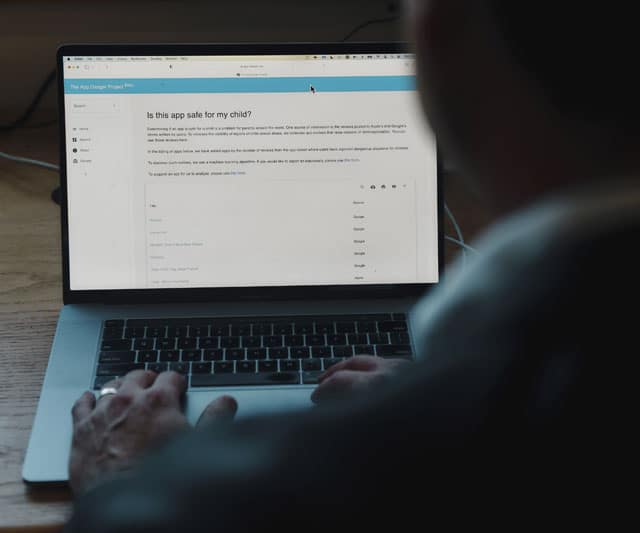Jordan Jacobs, an investor at the venture capital firm Radical Ventures, has been fielding calls from his firm’s investors. All of them wanted to know about DeepSeek, a Chinese artificial intelligence app that topped the app stores during a recent weekend.
DeepSeek had created a powerful AI model with far less money than most AI experts thought possible, upending many assumptions underlying the development of the fast-evolving technology. To calm the panic, Jacobs said he explained to his investors that Radical Ventures had long invested in more efficient AI models, similar to the one made by DeepSeek.
“Let’s focus on the companies who are actually building real businesses, rather than the ones that are chasing science fiction,” Jacobs said he told them.
Nvidia, Google, Meta and other giant tech companies have faced a barrage of questions about DeepSeek since the Chinese startup toppled long-standing notions about AI. But its repercussions are being felt beyond the largest firms, reaching into the venture capital industry that has bet big on the technology by plowing billions of dollars into AI startups.
For two years, venture capital firms have been engaged in a funding frenzy, pouring more than $155 billion into AI startups between 2023 and 2024, according to PitchBook, which tracks startups. Two of those AI companies — OpenAI and Anthropic — have raised $24 billion and $16 billion with the goal of building AI that is as intelligent as humans. OpenAI’s valuation has hit $157 billion — more than Pfizer or Citigroup — while Anthropic’s valuation has reached $20 billion.
What DeepSeek did has now called that funding fever into question. If a Chinese upstart can create an app as powerful as OpenAI’s ChatGPT or Anthropic’s Claude chatbot with barely any money, why did those companies need to raise so much cash?
“It’s not a good look right now” for some AI companies “given their talk about needing ever larger scale to come up with the best model,” said Matt Turck, an investor at FirstMark Capital. But, he added, AI companies would ultimately need money, computing power and infrastructure to serve their customers.
Venture capitalists have debated the best way to invest in AI ever since OpenAI released ChatGPT in late 2022. Some investors have argued that the technology underpinning ChatGPT and other products — often referred to as “foundation models” because they can power many applications, including chatbots, search engines and image generators — is not a good investment because the systems are expensive to create and easy for competitors to copy.
Marc Andreessen, an investor at Andreessen Horowitz, last year called such systems a “race to the bottom” and speculated that building a business with this type of AI would be like “selling rice” where anyone can compete.
With the hubbub caused by DeepSeek in recent days, venture capital investors who have not invested in foundation model companies like OpenAI and Anthropic — either because they anticipated the race to the bottom or because they did not have the money or opportunity — have used the moment to share their views.
Eric Vishria, an investor at the venture firm Benchmark, said on social media Monday that he believed foundation models were “the fastest depreciating asset in human history.” Anjney Midha, an investor at Andreessen Horowitz, wrote that DeepSeek showed “the current AI foundation model market structure is far from stable.”
Investors who have backed foundation model companies defended their investments. Gavin Baker, an investor at Atreides Management, which has invested in Elon Musk’s AI startup X.ai, said he felt good about his bet because AI companies are limited by how much data they can access. X.ai, he said, was in a strong position because it has its own unique source of data from the social platform X, which Musk also owns.
“For me, I feel very, very calm,” Baker said.
Other tech leaders have dissected DeepSeek’s claim that it only spent $6 million to create its AI model, which is a fraction of what other companies spend. Some pointed fingers at regulation, including former President Joe Biden’s AI executive order and California’s failed attempt to enact a state law on AI, for trying to hold back the industry’s progress.
They also bemoaned export restrictions on powerful AI chips as ineffective in stopping Chinese tech advances. Some lashed out at so-called AI safety advocates, who have tried to slow the development of AI because of its potential risks to humanity. Others invoked patriotism and said DeepSeek was a sign that the United States needed to move faster in AI. Still others saw the moment as an opportunity.
Turck said DeepSeek’s breakthrough might be bad news for some of the largest AI companies, but it opened up possibilities for other firms that were just getting started.
“The panic over the last few days is a dramatic overreaction,” he said in a message.
Niko Bonatsos, a venture capital investor at General Catalyst, said in an interview that DeepSeek had energized startups. “If you are building anything that is touching AI and you haven’t been excited, obsessed, scared and sleep-deprived over the last four days, what planet are you living on?” he said.
Bonatsos spent a recent Monday morning on the phone with the founders of companies who had enthusiastically built their own “forked” versions of DeepSeek’s technology, meaning they had copied and customized it. DeepSeek built its technology using freely available AI tools shared by other tech companies and then published its results for all to use, a common tech industry practice called open source.
Many of these startups were already building software on platforms developed by OpenAI and Anthropic, he said. DeepSeek had showed people new techniques for developing AI models that are cheaper to train and maintain, he said, which could lead to more competition and possibly some “creative destruction” for incumbents.
“That’s capitalism,” Bonatsos said.
Clément Delangue, CEO of Hugging Face, a startup that allows AI companies to post projects and work together, said Jan. 28 that more than 600 versions of the DeepSeek model had been created on his site in just a few days.
Investors are bracing for more surprises in the coming weeks. AI is “such a dynamic space that there is something wild that happens almost every day,” Jacobs said.
c.2025 The New York Times Company. This article originally appeared in The New York Times.







